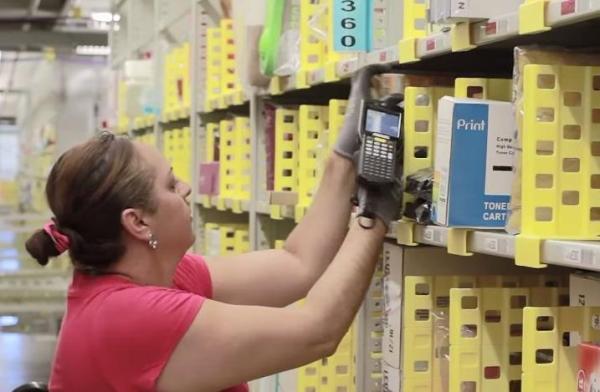Robots displacing humans... or humans becoming robots?
There is lot of fear around about robots, or more exactly software-powered automation, destroying jobs by the millions. But maybe there is still not enough awareness, and concern, about software creating jobs that only a robot would be happy, and fit, to do.

Somewhere around 2010 I discovered the first half of a great 2003 novel titled “Manna”, by some Marshall Brain. Here is a short, edited excerpt, still enough to give you the gist of it:
the robotic takeover started at fast-food restaurant. The "robot" installed there was not hominid. It was a normal PC running a software called "Manna" (Manager). The goal of the software was to replace the managers and tell the employees what to do in a more controllable way. Manna was connected to the cash registers, so it knew how many people were flowing through the restaurant [and thus] predict with uncanny accuracy what needed to be done. [It told it to employees] simply by talking to [each of them, individually, through headsets] Constantly. Manna micro-managed minimum wage employees to create perfect performance. Employees had very low wages because they did not need any special skill, but were also happy because they had nothing to worry.
Now compare that with this June 2017 “Worry less about robots…” article:
Speculating about the future risks [from robots diverts] our attention from what's happening to our labour market now...High street brands expect turnarounds of seven days or so from placing an order to taking delivery in a store… that factories in Turkey and India simply can’t meet. [This has lead to…] quasi-Victorian labour exploitation.
But there are other legal means employers can use to sweat their labour. In a sector such as logistics, smart technology is not being used to replace workers altogether, but to make them increasingly resemble robots… Wrist-based devices allow bosses to track their every move, right down to how long they take for lavatory breaks and the speed with which they move a particular piece of stock in a warehouse or from the delivery van to someone’s front door.
Oh, and of course there are Amazon distribution centers:
of people in orange vests pushing trolleys around a space the size of nine football pitches, equipped with handheld satnav computers for directions on where to walk next and what to pick up when they get there, [which also measure] their productivity in real time, [giving] them a real-time indication of whether they were running behind or ahead of their target and by how much. Managers could also send text messages to these devices to tell workers to speed up...
As they say… “human automation, if you like.". Draw your own conclusions. Personally, I believe that:
- “retraining for the new jobs that will be created” is a pipe dream. This is happening too fast to retrain, and almost all people hit by this asteroid have no realistic way to acquire the skills that those “new jobs” would require
- but this is a real problem only if we stick to the same concept and ethics of work and jobs that somehow lasted until the 20th century. But that’s for future posts.
Image source: image section from this article.